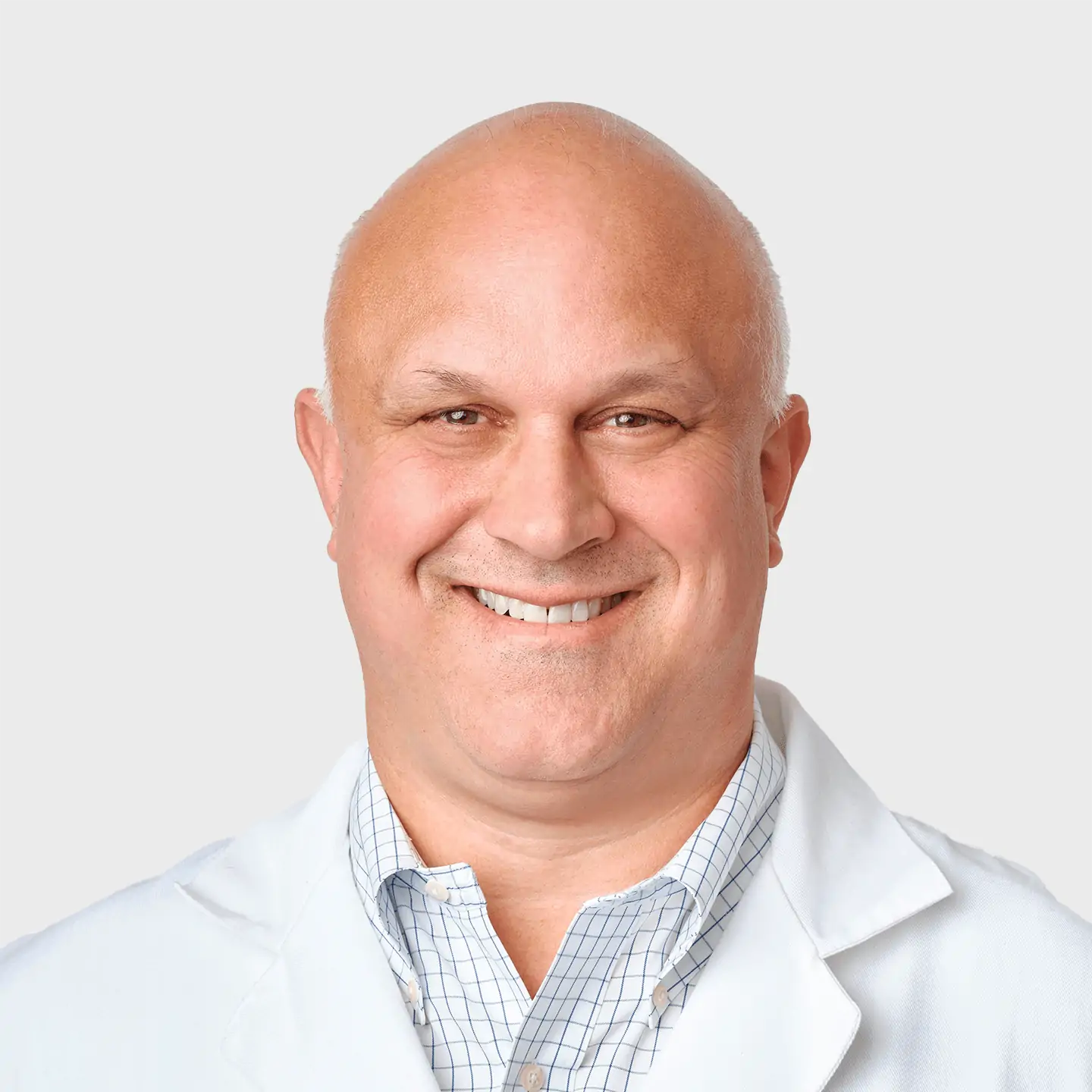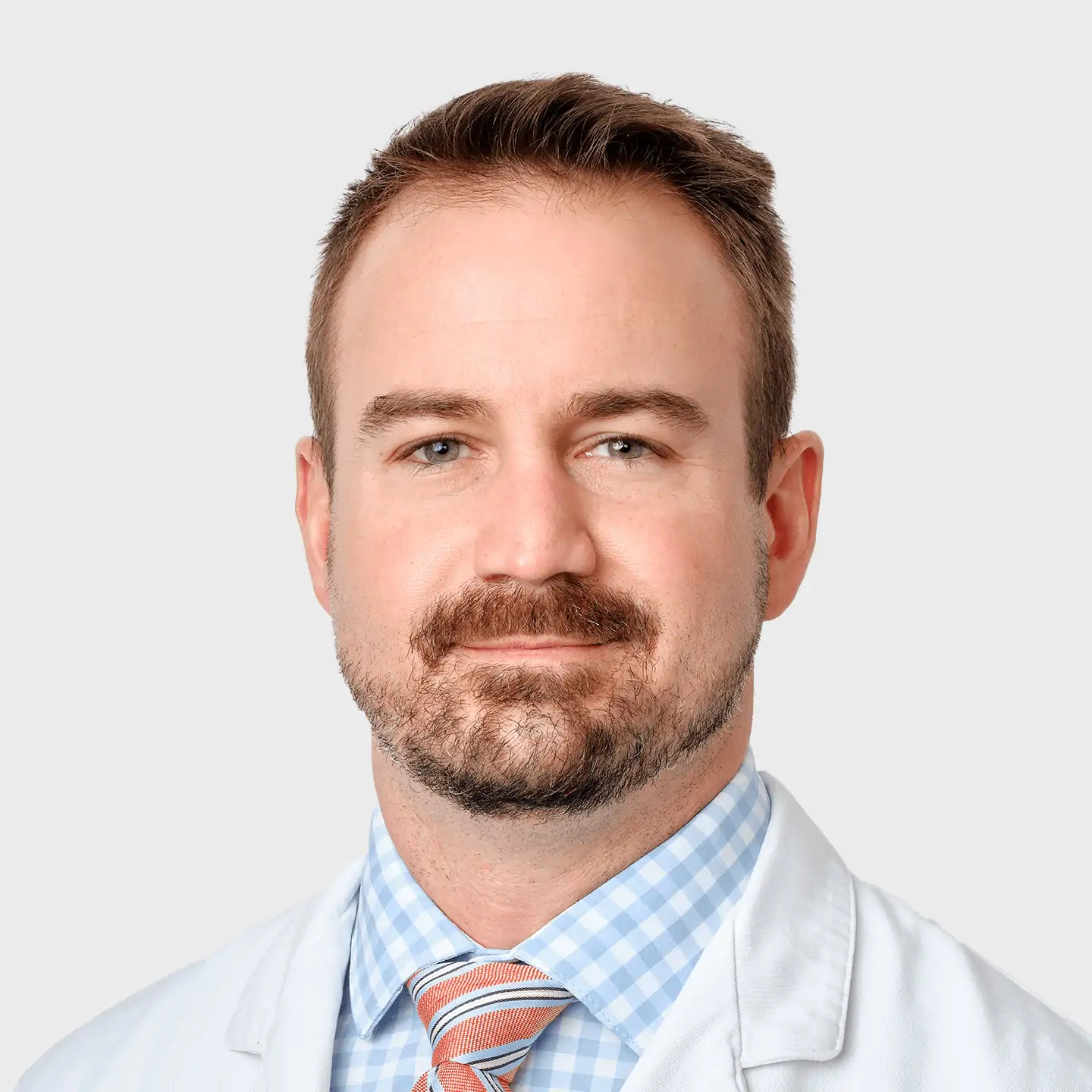Shoulder replacement surgery is an effective orthopedic treatment for severe shoulder pain where damaged parts of the shoulder are replaced with artificial components. The procedure helps restore mobility and relieve pain and get patients back to their everyday activities, jobs and athletics.
What to Know About Shoulder Replacement Surgery
Not everyone needs surgery to treat their degenerative or injured shoulder, but for those who do, there are multiple options available.
Types of Shoulder Replacement Surgery
- Total shoulder replacement – The shoulder is a ball-and-socket joint (like your hip), a replacement typically involves replacing the “ball” atop your upper arm as well as the “socket” in your shoulder blade.
- Partial shoulder replacement – If the damaged part of the shoulder is isolated to a specific area, our surgeons may recommend a partial shoulder replacement where only the ball is replaced. This procedure is less common.
- Reverse shoulder replacement – This type of surgery is used in multiple cases where either the rotator cuff muscles are damaged beyond repair (e.g. severely deformed due to arthritis, fractures of the shoulder, etc.). In a reverse total shoulder replacement, the ball and socket positions are reversed. This alteration stabilizes or normalizes your arm’s dynamic position, so it can be more effectively powered by the deltoid and the other “power” muscles instead of the rotator cuff.
Which Conditions Does Shoulder Replacement Surgery Treat?
- The most common condition that patients seek shoulder replacement surgery for is osteoarthritis, which is the most common form of arthritis. It is caused by wear and tear and causes joint pain and stiffness. It is most common among older adults.
- Other conditions that shoulder replacement surgery may treat include:
- Post-traumatic arthritis (e.g. previous fracture or dislocation)
- Rheumatoid or other inflammatory arthritis
- Irreparable rotator cuff tears
- Severe acute fractures of the shoulder joint
- Failed previous shoulder surgery
Who is a Good Candidate for Shoulder Replacement Surgery?
While shoulder replacement surgery is becoming more common, the treatment is typically recommended for:
- Patients who experience severe shoulder pain to the point where everyday activities are painful and difficult such as washing in the shower, reaching for something, etc.
- Patients with poor range of motion or weakness in the shoulder.
- Patients who experience significant shoulder pain while they are sleeping.
- Patients who have not responded to other treatments like physical therapy, medications, injections, or other procedures with underlying arthritis or rotator cuff tears.
- Patients who had a previous shoulder replacement that was unsuccessful. These patients may be a candidate for a reversed total shoulder replacement.
What Can I Expect During Recovery Following Shoulder Replacement Surgery?
Depending on their overall health and other factors, patients could go home the same day of the surgery (outpatient) or they may require a hospital stay for overnight observation.
You will be required to wear an immobilizer to protect your shoulder, typically for four weeks following surgery including when sleeping.
All patients have a nerve block performed pre-operatively that can help your anesthesiologist minimize or avoid narcotics during your surgery. This allows you to wake up more easily and feel better immediately after surgery. In addition, the nerve block can keep your arm pain-free for 18 to30 hours, further helping you avoid post-op narcotic use.
Most shoulder replacement surgery patients experience minimal post-op pain, often requiring only non-narcotic medications.
A patient’s recovery experience is also dependent on his or her adherence to a recovery plan.
The recovery plan for shoulder replacement surgery may include:
- Physical therapy – This is usually done in-home for the first two weeks and then the patient switches to in-person physical therapy. In-person physical therapy is usually done 1-2 times weekly for 2-3 months after surgery.
- Limiting or modifying activities for the first 4-6 months post-op.
- Total shoulder replacement – The shoulder is a ball-and-socket joint (like your hip), a replacement typically involves replacing the “ball” atop your upper arm as well as the “socket” in your shoulder blade.
- Partial shoulder replacement – If the damaged part of the shoulder is isolated to a specific area, our surgeons may recommend a partial shoulder replacement where only the ball is replaced. This procedure is less common.
- Reverse shoulder replacement – This type of surgery is used in multiple cases where either the rotator cuff muscles are damaged beyond repair (e.g. severely deformed due to arthritis, fractures of the shoulder, etc.). In a reverse total shoulder replacement, the ball and socket positions are reversed. This alteration stabilizes or normalizes your arm’s dynamic position, so it can be more effectively powered by the deltoid and the other “power” muscles instead of the rotator cuff.
- The most common condition that patients seek shoulder replacement surgery for is osteoarthritis, which is the most common form of arthritis. It is caused by wear and tear and causes joint pain and stiffness. It is most common among older adults.
- Other conditions that shoulder replacement surgery may treat include:
- Post-traumatic arthritis (e.g. previous fracture or dislocation)
- Rheumatoid or other inflammatory arthritis
- Irreparable rotator cuff tears
- Severe acute fractures of the shoulder joint
- Failed previous shoulder surgery
While shoulder replacement surgery is becoming more common, the treatment is typically recommended for:
- Patients who experience severe shoulder pain to the point where everyday activities are painful and difficult such as washing in the shower, reaching for something, etc.
- Patients with poor range of motion or weakness in the shoulder.
- Patients who experience significant shoulder pain while they are sleeping.
- Patients who have not responded to other treatments like physical therapy, medications, injections, or other procedures with underlying arthritis or rotator cuff tears.
- Patients who had a previous shoulder replacement that was unsuccessful. These patients may be a candidate for a reversed total shoulder replacement.
Depending on their overall health and other factors, patients could go home the same day of the surgery (outpatient) or they may require a hospital stay for overnight observation.
You will be required to wear an immobilizer to protect your shoulder, typically for four weeks following surgery including when sleeping.
All patients have a nerve block performed pre-operatively that can help your anesthesiologist minimize or avoid narcotics during your surgery. This allows you to wake up more easily and feel better immediately after surgery. In addition, the nerve block can keep your arm pain-free for 18 to30 hours, further helping you avoid post-op narcotic use.
Most shoulder replacement surgery patients experience minimal post-op pain, often requiring only non-narcotic medications.
A patient’s recovery experience is also dependent on his or her adherence to a recovery plan.
The recovery plan for shoulder replacement surgery may include:
- Physical therapy – This is usually done in-home for the first two weeks and then the patient switches to in-person physical therapy. In-person physical therapy is usually done 1-2 times weekly for 2-3 months after surgery.
- Limiting or modifying activities for the first 4-6 months post-op.
Why Choose Sports Medicine North for Shoulder Issues
Sports Medicine North’s orthopedic shoulder surgeons are amongst the most experienced and comprehensive Boston-New England surgeons dedicated to providing surgical and nonsurgical approaches to treating acute and chronic shoulder conditions. We provide shoulder care for adolescents and adults with sports and work-related injuries.
Our surgeons were the first in the region to provide arthroscopic labral and rotator cuff repairs as well as the first to provide comprehensive shoulder replacement surgery, more specifically reverse total shoulder replacements. We also provide comprehensive shoulder fracture care including clavicle, humerus, and scapular fractures.
Our specialists at Sports Medicine North strive to offer the highest level of shoulder care that helps patients to restore function, restore anatomy, and relieve pain and discomfort. We are always happy to provide patients with second opinions for potential surgery or failed prior surgery. We work closely with our esteemed therapists at Physical Therapy North as well as other Boston-based and regional physical therapy groups pre- and post-operatively to provide you with the best team approach care for your shoulder problem.
Physicians

- Sports Medicine
Practicing in:
Peabody
- Sports Medicine
Practicing in:
Peabody and Beverly




